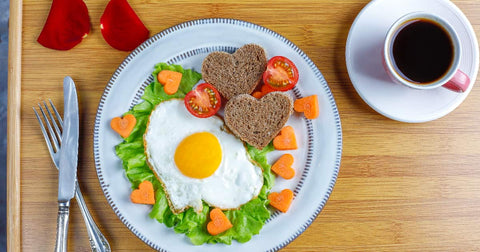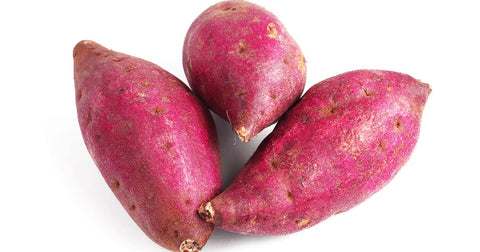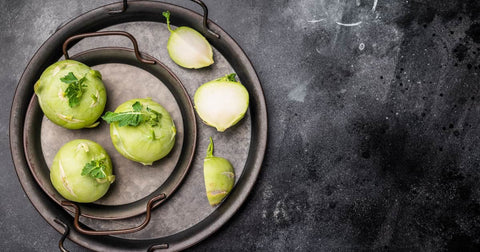In a world of processed foods and convenient meals, it's easy to consume more sodium than we realize. Excess sodium intake can contribute to high blood pressure, heart disease, and other health problems. But fear not, flavor-seekers! Adopting a low-sodium diet doesn't mean sacrificing taste or satisfaction.

This article explores the benefits of low sodium foods, provides a range of delicious low sodium breakfast ideas, and offers insights into managing food intolerances for optimal digestive health.
Why Choose a Low Sodium Diet?
Reducing your sodium intake can offer numerous benefits:
-
Lower Blood Pressure: Excess sodium can raise blood pressure, a major risk factor for heart disease and stroke.
-
Improved Heart Health: A low sodium diet can help protect your cardiovascular system.
-
Reduced Water Retention: Sodium can cause your body to retain water, leading to bloating and swelling.
-
Kidney Health: Lowering sodium intake can benefit your kidneys, especially if you have kidney disease.
Low Sodium Breakfast: Jumpstart Your Day with Flavor
Many breakfast staples are surprisingly high in sodium. But with a little creativity, you can create delicious and satisfying low-sodium breakfast options:

-
Oatmeal with Berries and Nuts: Start your day with a warm bowl of oatmeal topped with fresh or frozen berries and a sprinkle of nuts. Choose plain oats and avoid instant varieties, which can be high in sodium.
-
Scrambled Eggs with Vegetables: Whip up a quick and nutritious breakfast with eggs and your favorite vegetables, like spinach, mushrooms, or peppers. Season with herbs and spices instead of salt.
-
Greek Yogurt Parfait: Layer Greek yogurt with fresh fruit, granola, and a drizzle of honey for a protein-packed and gut-friendly breakfast.
-
Smoothies: Blend your favorite fruits, vegetables, and a protein source like protein powder or Greek yogurt for a quick and nutritious breakfast on the go.
-
Whole-Wheat Toast with Avocado: Top whole-wheat toast with mashed avocado, a sprinkle of red pepper flakes, and a squeeze of lemon juice for a satisfying and heart-healthy breakfast.
Easy Low Sodium Meals for Seniors: Simple and Delicious
For seniors, managing sodium intake is especially important. Here are some easy low-sodium breakfast ideas:
-
Poached eggs with whole-wheat toast and fruit
-
Oatmeal with berries and a dollop of plain yogurt
-
Fruit salad with a sprinkle of nuts and seeds
Low Sodium Lunch Ideas: Continuing the Healthy Trend

-
Salads: Choose salads with grilled chicken or fish, plenty of vegetables, and a light vinaigrette.
-
Soups: Opt for homemade soups with fresh ingredients or low-sodium canned soups.
-
Sandwiches: Use whole-grain bread and fill it with lean protein, vegetables, and healthy fats like avocado.
Low Sodium Meats: Making Smart Choices
When choosing meats, opt for fresh or frozen options over processed meats, which tend to be high in sodium. Some good choices include:
-
Skinless chicken or turkey breast
-
Fish
-
Lean cuts of beef or pork
Salt Alternatives for High Blood Pressure
If you're looking to reduce your sodium intake, consider these salt alternatives:
-
Potassium chloride-based salt substitutes: These can help lower blood pressure.
-
Herbs and spices: Experiment with different flavors to enhance your dishes without relying on salt.
-
Lemon juice or vinegar: Add a tangy twist to your meals.
Food Intolerance and Digestive Health
If you experience digestive issues, even when following a low-sodium diet, consider the possibility of food intolerances or sensitivities. These can trigger inflammation and disrupt your gut health.
Food Sensitivity Test Kit: Identify Your Triggers
A food sensitivity test kit can help you identify specific foods that might be causing your symptoms. By eliminating or reducing these trigger foods, you can potentially alleviate your digestive problems and improve your overall gut health.
Key Takeaways:

-
A low-sodium diet is crucial for managing blood pressure and overall health.
-
There are plenty of delicious and satisfying low-sodium breakfast options available.
-
If you experience digestive issues, consider a food sensitivity test to identify potential food intolerances.
Remember, this article is intended for informational purposes only and should not be considered a substitute for professional medical advice. If you have any concerns about your health or dietary choices, consult a qualified healthcare professional.
Frequently Asked Questions:
1. Are there any breakfast cereals that are low in sodium?
Yes, many breakfast cereals are low in sodium. Look for options that have less than 140mg of sodium per serving and are made with whole grains for added fiber. You can also check the "Heart-Check" symbol from the American Heart Association for certified heart-healthy options.
2. I love eggs for breakfast. How can I make them low sodium?
Instead of adding salt, try seasoning your eggs with herbs, spices, or a dash of hot sauce. You can also add vegetables like spinach or mushrooms for extra flavor and nutrients.
3. What are some low-sodium bread options for toast?
Look for whole-grain bread with less than 140mg of sodium per slice. You can also try making your own bread at home using low-sodium ingredients.
4. I'm craving something sweet for breakfast. Are there any low-sodium options?
Yes, there are plenty of low-sodium, naturally sweet breakfast options. Try fresh fruit with a dollop of plain yogurt, a smoothie made with fruits and vegetables, or oatmeal with berries and a drizzle of honey.
5. I'm experiencing digestive issues after breakfast. Could it be a food intolerance?
Yes, food intolerances can trigger digestive upset, even with healthy breakfast choices. Consider a food sensitivity test to identify potential food triggers and make informed dietary changes.


.png?v=1737390083)
.png?v=1737187409)


